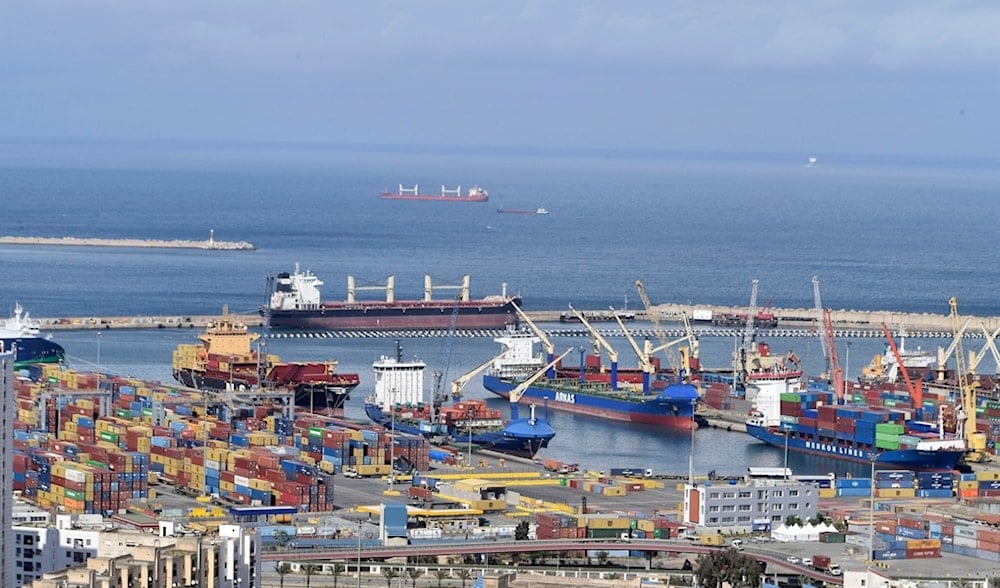Algeria set to become one of largest Arab economies by 2026: IMF
The IMF projects Algeria’s GDP to reach $285 billion by 2026, driven by non-hydrocarbon growth and reforms, cementing its role as a key Arab economy.
-

View of activities in the port of Algiers Thursday, March 27, 2025 (AP)
The International Monetary Fund (IMF) projects that Algeria’s economy in 2026 will strengthen significantly, placing the country among the largest Arab economies.
With an estimated gross domestic product (GDP) of $285 billion, Algeria is expected to become the fourth-largest Arab economy, following Saudi Arabia, the United Arab Emirates, and Egypt. This projection underscores Algeria’s growing economic influence in North Africa and the wider Arab region.
According to Algerian media citing IMF data, Algeria’s GDP forecast puts it ahead of Iraq and Qatar by 2026. This trajectory is based on a combination of broad structural reforms and significant growth in non-hydrocarbon sectors, highlighting the country’s efforts to diversify its economic base beyond oil and gas.
World Bank forecasts steady growth
Similarly, the World Bank revised its economic outlook for Algeria, citing robust performance in early 2025. The international financial institution now expects Algeria’s economic growth to reach 3.8% in 2025, followed by 3.7% in 2026.
This upward revision reflects strong momentum in domestic demand, particularly household consumption, and a notable acceleration in gross fixed investment, which surged by 13.9%. These factors have helped offset a temporary contraction in the hydrocarbon sector and point to sustained recovery moving forward.
The positive outlook is attributed to broad-based reforms aimed at enhancing economic resilience and encouraging private sector growth. The increase in non-hydrocarbon sectors plays a critical role in diversifying the economy and reducing vulnerability to global oil market fluctuations.
The report suggests that this upward trend will continue throughout 2026, positioning Algeria as a dynamic player in the regional economy and a potential economic hub in North Africa.
Inflation drop expected
In terms of monetary stability, the IMF expects inflation in Algeria to ease to 2.8% in 2025, down from 4% in the previous year. This decline reflects more stable pricing conditions and effective monetary policy, contributing to a healthier macroeconomic environment.
Beyond macroeconomic indicators, the report also pointed to positive social developments, particularly in terms of gender inclusion. Women’s participation in the labor market rose from 7% to 17% between 2000 and 2017, placing Algeria among the regional leaders in this area.
This progress signals broader socio-economic shifts that complement the country’s economic reforms, reinforcing Algeria’s long-term development trajectory.
Read more: Algeria to boost oil production as part of OPEC+ output hike

 3 Min Read
3 Min Read









